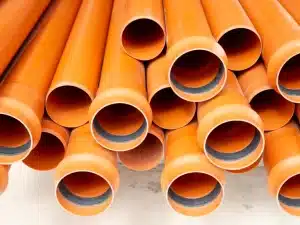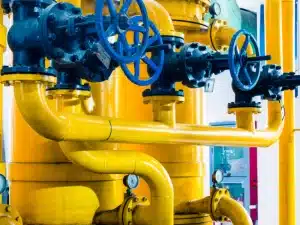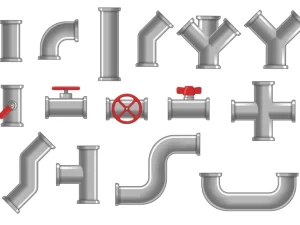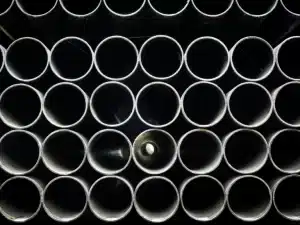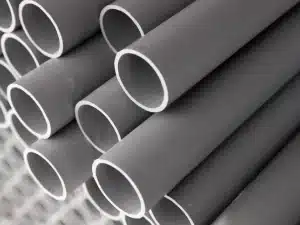Common Mistakes to Avoid When Selecting High-Pressure Ball Valves
Selecting the right ball valve for high-pressure flow application systems is crucial. A valve selection mistake can create disaster, from system failure to an unsafe working environment and increased maintenance expenses. Whether managing pipelines for oil, gas, or chemicals, there’s more than just pricing when investing in high-pressure ball valves; value, safety, and longevity are just as important.
Most professionals make the same selection mistakes when choosing these valves, often unknowingly. If you are dealing with the ball valves supplier, ensure that the following mistakes are not repeated.
Not Considering the Application Requirements
Every application differs from one another; in fact, they have different flows and operational frequencies. Not having proper information can cause a negative impact and lead to poor performance. For example, valves used in the petrochemical industry must be able to handle aggressive media, and those in food processing must comply with hygiene standards. Have a discussion with your ball valve supplier to have a clear understanding of what application you need. Fluid type, viscosity, pressure, and the need for operation automation are some factors to keep in mind.
Overlooking Pressure and Temperature Ratings
A common mistake is not paying attention to the valve’s pressure and temperature rating. Not every valve is capable of bearing strain under extremes.
- Always compare the system’s maximum operational pressure with the valve’s pressure rating.
- If your valve needs to be tempered to high and low heating extremes, make sure it can withstand both.
Get in touch with experienced high pressure ball valves suppliers for basic guidance on choosing the right valves that balance system demands and compromise safety and durability.
Ignoring the Compatibility of Materials Used for the Valve
A valve is likely to withstand high amounts of pressure, but the use of the wrong material for a specific application can be detrimental to its life span. Assuredly, corrosion, erosion or chemical incompatibility can shorten the life of the valve and endanger the entire system.
Talk to your supplier about the materials that may need to be used with the ball valves, such as alloys, brass, and stainless steel. Ensure it suits the medium being transported. For example:
- Corrosive media is best dealt with using a hammer union cross for stainless steel.
- Low-pressure water system pipes require brass.
- Highly abrasive fluids may need special alloys.
Not only does making the right choice extend the life of a valve, but the safety of the operations conducted is also enhanced.
Choosing the Wrong Valve Type (Floating vs. Trunnion)
Ball valves are not all the same. Most purchasers do not pay attention to the critical difference between a floating valve and a trunnion-mounted valve. This can be detrimental.
- Floating ball valves work well for smaller and less demanding pressure systems. The ball is retained by the seats and moves slightly to seal due to downstream pressure.
- The best trunnion ball valve suppliers Floating ball valves are ideal for high pressure and large diameter systems. The ball’s fixed position offers greater sealing integrity under high loads.
For most applications get the right valve and not just any valve that can be crucially supplied. Leading floating ball valve suppliers can assist you in determining which type is ideal for your system based on its pressure and size constraints.
Neglecting Certifications and Industry Standards
An error in a valve would not function properly and would not adhere to industry standards but what does give modern errors their edge is that it can still function yet go south in safety and compliance.
Before purchasing, verify that the valve and the ball valves supplier adhere to standards like:
- ISO
- API 6D
- ASME
- CE marking
Certified valves ensure quality, safety, and, most importantly, standardized control. Documentation is necessary, and compliant suppliers of high-quality ball valves provide the previously mentioned documents upon request without any hesitation.
Underestimating the Importance of Seal Quality
High-quality seals deliver reliable core functions during operation. Weak seals, while a great worry, frequently go neglected.
- Make sure to pick up valves that have PTFE, Viton, or reinforced Teflon seals.
- Check for compatibility with the fluid’s chemical characteristics.
Seals with greater performance capabilities streamline leakage, maintenance, and assorted servicing needs while enhancing the valve’s lifespan. This information should be disclosed by your ball valves supplier on the sealing materials and compatibility with your application.
Failing to Assess Supplier Reliability
One of the most common mistakes in business strategy is selecting suppliers on the basis of price alone. Competitive pricing is important, but so is the reliability of the supplier. Look for a supplier of ball valves who pays attention to:
- Deliveries without unreasonable delays
- Achieving fast and effective customer mugshots
- Well-defined drafts and documented process quality control
- Knowledge in addition to the field and post-sale technical services.
Good floating ball valve suppliers will support customers with advice relevant to their business, custom valve design, and proven solutions.
Skipping Maintenance and Longevity Considerations
It is well known that most buyers pay attention to the purchase cost of the valve, neglecting the maintenance requirements and the lifespan of the valve. This habit leads to several replacements, which increases the operational downtimes and operational costs.
These are the features that you should pay attention to:
- Design that can be maintained simply
- Parts that can be replaced easily
- Low torque requirements
- Extended sealing cycle ratings
Reputed high pressure ball valves suppliers will guide you to consider total cost of ownership (TCO) instead of simply the initial expenditure. Consider the case of a more expensive valve — if it outlasts other valves and performs exceptionally well, then it becomes a more economical investment in the long run.
The Key Takeaway
The informed selection of a high-pressure ball valve is much more than a single technical decision; it is a multi-faceted, high-level assessment. Following these guidelines will enhance safety, efficiency, and cost management while steering clear of common oversights. Collaborate with a reputable ball valve vendor who thoroughly understands your requirements and can support you with their knowledge. Whether the job involves hostile fluids, extreme pressures, or delicate scenarios, selecting the right ball valves supplier will eliminate excessive expenses and hassles in the future.
FAQs
What makes a ball valve ideal for high-pressure applications?
A high-pressure ball valve features reinforced seals, a durable body – frequently crafted from stainless steel or an alloy – and equally matched or exceeded system pressure ratings. These specifications are guaranteed when sourced from a trusted supplier of high-pressure ball valves.
How do I determine the right material for my valve?
Consider fluid characteristics, pressure, temperature, and other surrounding factors. Consulting with a ball valves supplier will enable you to discuss your systems and select materials designed to withstand corrosion, wear, as well as chemical destruction.
What’s the difference between floating and trunnion ball valves?
Fluid pressure is used to seal floating ball valves, making them more appropriate for low pressure and smaller sizes. Trunnion valves are meant for higher pressure or larger-diameter systems since they are mechanically anchored. Based on your preferences, floating ball valve suppliers are best positioned to advise you.
Why are certifications important when choosing a ball valve supplier?
Certification guarantees that the valves are safe for use and function according to the defined international and qualitative benchmarks placed on them dealing with safety, performance, and quality. Certified ball valves suppliers sell these products because it helps manage the risk concerning safety, which is why reputable suppliers always offer certified products.
Can improper valve selection lead to safety risks?
Absolutely. Selecting the wrong valve poses the risk of leakage, failure under pressure, and premature corrosion, which are all detrimental for business. Working with experienced high-pressure ball valves suppliers ensures appropriate decisions are made.

